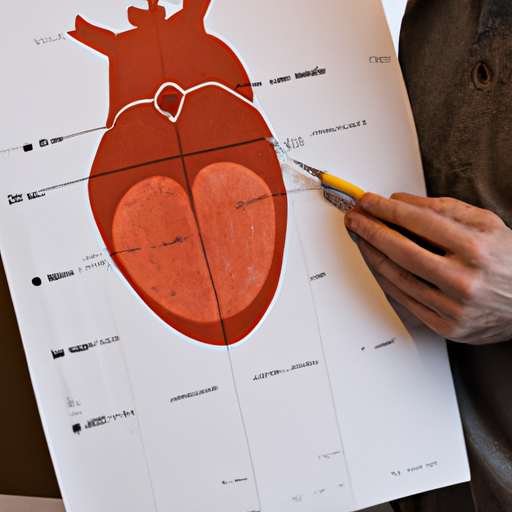Understanding an Enlarged Heart
An enlarged heart, known medically as cardiomegaly, is a condition that can affect your beloved canine companion. It’s not a disease in itself, but rather a symptom of an underlying issue. It can be quite alarming when your vet tells you that your dog has an enlarged heart. But remember, you’re not alone in this journey. Your furry friend depends on you and with the right knowledge, you can navigate this situation effectively.
Potential Causes of an Enlarged Heart
There are several reasons why your dog might develop an enlarged heart. Below are some of the most common causes:
-
Dilated Cardiomyopathy (DCM): This is the most common cause. In DCM, the heart’s muscle walls become thin and weak. Over time, the heart enlarges to compensate for its decreased pumping ability.
-
Heartworm disease: This is caused by a parasite that lives in the heart and major blood vessels. It can cause significant inflammation and damage, leading to an enlarged heart.
-
Age: Like humans, as dogs age their organs can naturally enlarge.
-
Breed: Certain breeds are more susceptible to heart disease and may develop an enlarged heart as a result.
| Breed | Risk of Developing an Enlarged Heart |
|---|---|
| Doberman Pinscher | High |
| Boxer | Medium |
| Great Dane | High |
| Cocker Spaniel | Low |
Symptoms to Watch Out For
As a caregiver, you are the first line of defense in spotting any changes in your dog’s health. Here are some symptoms you might notice if your dog has an enlarged heart:
- Fatigue or lethargy
- Difficulty breathing or shortness of breath
- Coughing, especially at night
- Loss of appetite
- Weight loss
- Fainting or collapse
How to Manage an Enlarged Heart
If your dog is diagnosed with an enlarged heart, it’s important to remember that while it can’t be cured, it can be managed. Your vet will recommend a treatment plan based on the underlying cause. This may include medication to improve heart function, a special diet, and regular check-ups to monitor your dog’s condition.
Prevention is Better Than Cure
Preventing an enlarged heart is far better than trying to treat it. Here are some tips to help keep your dog’s heart healthy:
- Regular exercise: Keep your dog active with daily walks or play sessions.
- Balanced diet: Ensure your dog gets all the nutrients they need for a healthy heart.
- Regular vet check-ups: Early detection of heart disease can make a big difference in the outcome.
- Heartworm prevention: Ask your vet about heartworm prevention treatments.
FAQs
Q: Can an enlarged heart in dogs be cured?
A: While not curable, the condition can be managed with medication and lifestyle changes.
Q: Are certain dog breeds more prone to an enlarged heart?
A: Yes, some breeds like Dobermans and Great Danes have a higher risk.
Q: What is the life expectancy of a dog with an enlarged heart?
A: It varies greatly depending on the severity of the condition and the dog’s overall health.
Q: Can diet and exercise help a dog with an enlarged heart?
A: Yes, a balanced diet and regular exercise can contribute to overall heart health.



